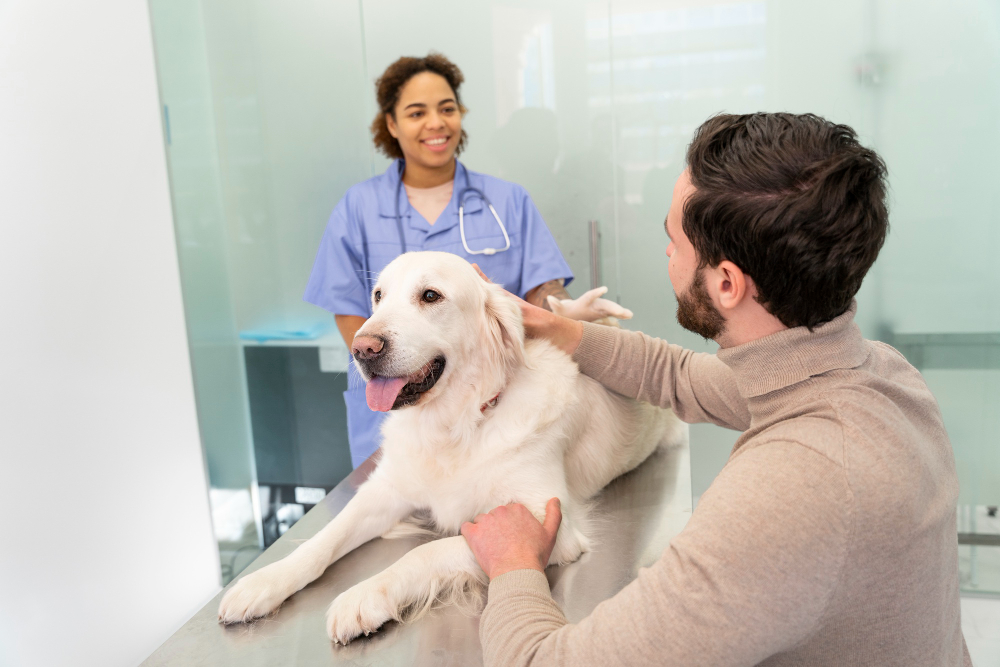Neutering is a common procedure for male dogs, but many pet owners wonder how it might affect their furry friend’s behavior, particularly in terms of anxiety. In this article, we will explore the impact of neutering on male dog behavior, discussing key topics such as what happens to a male dog when it gets neutered, what age should I get my male dog neutered, male dog sterilization, and male dog behavior changes after neutering.
What Happens to a Male Dog When It Gets Neutered: The Procedure and Immediate Effects
Neutering, also known as male dog sterilization, is a surgical procedure that involves the removal of a male dog’s testicles. The operation is relatively simple and is performed under general anesthesia to ensure the dog’s comfort. Following the procedure, your dog may experience mild discomfort, but they will typically recover within a few days.
Hormonal Changes and Behavior Impact
When a male dog is neutered, the production of testosterone, a hormone associated with male characteristics, is significantly reduced. This hormonal change can lead to behavioral changes, particularly in terms of aggression and territoriality. It’s important to note that while these changes can be beneficial, they may not necessarily resolve all behavioral issues, including anxiety.
What Age Should I Get My Male Dog Neutered: The Importance of Timing
Determining the best time to neuter your dog is essential for maximizing the benefits and minimizing potential complications. The right age for neutering your dog depends on factors such as breed, size, and overall health.
Recommended Age for Neutering
The best age to neuter a male dog can vary depending on factors such as breed, size, and overall health. It is generally recommended to neuter animals after they reach sexual maturity to ensure proper bodily and hormonal development. For most dogs, this occurs between one and two years of age. However, some veterinarians may suggest waiting longer, particularly for large breeds. It’s essential to consult with your veterinarian to determine the ideal age for neutering your specific dog. Neutering too early or too late can lead to complications and may not provide the same behavioral benefits as neutering at the appropriate time.
Male Dog Sterilisation and Anxiety: Does Neutering Affect Anxiety?
The relationship between neutering and anxiety in male dogs is complex. While some research suggests that neutered dogs may exhibit fewer anxiety-related behaviors, it’s important to note that neutering is not a cure-all for anxiety. The procedure can help reduce certain behaviors linked to anxiety, such as aggression and territoriality, but it may not eliminate the root cause of the anxiety itself.
Why Neutering Might Help with Anxiety
There are several reasons why neutering might help alleviate anxiety in male dogs. The reduction in testosterone levels can lead to decreased aggression and territorial behavior, which are often associated with anxiety. Additionally, neutering can help reduce the dog’s urge to roam, making them less likely to encounter stressful situations that could trigger anxiety.
Male Dog Behavior Changes After Neutering: Do Male Dogs Calm Down After Neutering?
Many pet owners wonder whether their male dogs will become calmer after being neutered. While it’s true that some dogs may exhibit calmer behavior following the procedure, it’s important to note that each dog is different, and there is no guarantee that neutering will result in a calmer demeanor.
Behavior Changes: Positive and Negative
After neutering, male dogs may experience a range of behavior changes, both positive and negative. Some dogs may become less aggressive, less territorial, and less likely to roam. However, other dogs may experience increased anxiety or fearfulness, weight gain, or even urinary incontinence. It’s important to remember that every dog is unique, and their individual response to neutering can vary.
How Much Does Neutering Calm a Dog Down?
The degree to which neutering calms a dog down depends on the individual dog and their specific behaviors prior to the procedure. Some dogs may experience significant calming effects, while others may only exhibit minor changes in behavior. Additionally, factors such as the dog’s environment, upbringing, and overall temperament can also influence the impact of neutering on their behavior.
Conclusion
In conclusion, neutering can have a positive impact on male dog behavior, including the reduction of certain anxiety-related issues. While it’s true that male dog sterilisation can help with aggression, territoriality, and roaming, it’s important to remember that it may not entirely resolve anxiety in all dogs.
To answer the main questions: Does neutering affect anxiety? Neutering can help reduce anxiety-related behaviors in some dogs, but it may not eliminate the root cause of anxiety. Do male dogs calm down after neutering? Some dogs may become calmer after being neutered, but the degree of calmness varies depending on the individual dog. How much does neutering calm a dog down? The extent to which neutering calms a dog down depends on the dog’s unique characteristics and behaviors prior to the procedure.
If you are considering neutering your male dog, it’s essential to consult with your veterinarian to determine the best course of action. Keep in mind that every dog is different, and observing your dog’s behavior before and after the procedure will help you better understand the potential benefits and drawbacks of neutering for your specific pet.
By being well-informed and working closely with your veterinarian, you can make the best decision for your dog’s health and well-being, and potentially help them live a happier, more relaxed life. Remember that while neutering can be beneficial in addressing some behavioral issues, including anxiety, it’s crucial to provide your dog with a loving, supportive environment to ensure their overall emotional and physical health.

